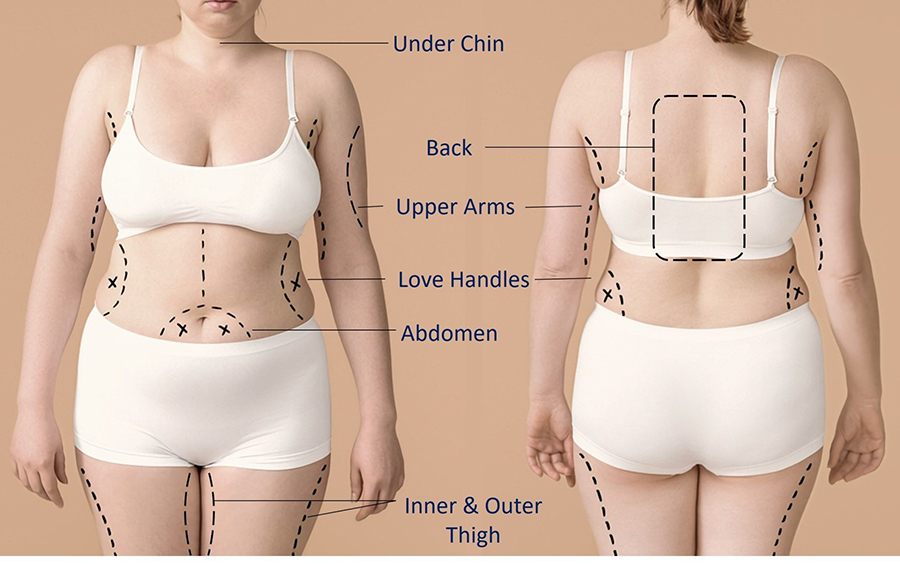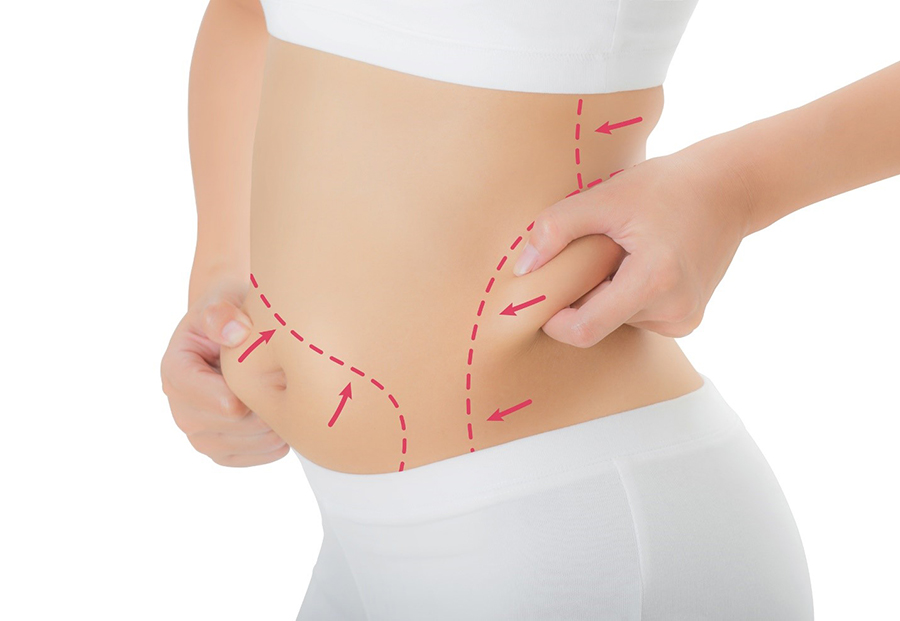The globe over, liposuction is highly common, and its popularity is only growing. Lipos is frequently perceived as a simple and quick process, but like any surgery, it should not be taken lightly. Despite being generally safe, liposuction has hazards, particularly for those who already have specific medical conditions. Diet and exercise are the best methods for weight loss. With liposuction, you can get rid of stubborn fat in places like your thighs, upper arms, and belly. Here, we go over the requirements and risks you should take into account while considering whether or not to receive lipo.
In this article we will discuss:
- specific requirements for liposuction
- factors that can increase your risk of complications from liposuction
- Body parts eligible for lipo
- Liposuction is not a procedure for weight loss
- Is Liposuction Safe?
- Final words
- FAQ
Table of Contents
ToggleSpecific requirements for liposuction
Your weight, the condition of your skin, and the general state of your health will all be taken into consideration by your doctor when determining if you are a good candidate for liposuction. Candidates for lipo must be in generally good health and be free of any major illnesses.
People who are expecting, have serious cardiac conditions, or have blood-clotting issues shouldn’t receive liposuction since they run the risk of serious, potentially fatal consequences like excessive bleeding.
Factors that can increase your risk of complications from liposuction:
- Anyone over the age of 18 is eligible for liposuction, however those over the age of 45 may have a slightly increased risk of problems such hematomas (swelling of blood outside of blood vessels), infections, and venous thromboembolism (blood clot in a deep vein, like in the pelvis, lower leg, or thigh). In one significant research of more than 31,000 liposuction procedures published in the Aesthetic Surgery Journal in 2017, 2.6% of patients experienced problems compared to 2.3% of patients who were 45 years or younger.
- A blood clot following surgery is more likely to occur in people with greater BMI. Before receiving liposuction, experts advise that you should be within 30% of your target weight. If your healthy body weight is 150 pounds, for instance, you should not weigh more than 195 pounds.
- Chronic smokers are more likely to experience skin necrosis, a dangerous type of infection, after lipo. Skin necrosis has the potential to be fatal if it is not treated right away. In fact, it’s believed that 30% of people who get skin necrosis of some kind—not necessarily from liposuction—die, either because they delayed seeking medical attention or because they were too old or had other health issues. For this reason, doctors advise smokers to give up their habit at least three weeks before having liposuction.
- Additionally, doctors advise obtaining lipo in places where your skin is elastic. When fat is removed from beneath the skin, people who have liposuction in regions where the skin is already loose and not very elastic may notice that their skin seems even looser following the procedure.
- Although lipo is intended to eliminate additional fat, if you are really obese you won’t obtain decent results. This is due to the possibility of developing irregular contours, which are essentially an uneven body shape.
Body parts eligible for lipo:

The torso, arms, legs, breasts, buttocks, and the area around your chin or jawline are the most often liposuctioned locations. The jiggly fat that sits just beneath your skin and above your muscles and internal organs is called subcutaneous fat, and it covers all of these places. Visceral fat, the second form of fat, covers your organs and gives you a big “beer belly” appearance. Liposuction cannot remove this sort of fat, but diet and exercise can help you lose it.
Liposuction is not a procedure for weight loss:
Despite the fact that liposuction removes fat, it is not a suitable option for those who need to significantly reduce their body weight. Lipo is not at all a weight loss procedure. A few pounds may be lost, but only where the treatment is applied.
In fact, the American Society of Plastic Surgeons issues a warning regarding the dangers of doing “large volume liposuction” involving more than 5 liters, or around 10 pounds, of fat. For patient safety, some doctors absolutely refrain from exceeding this threshold. For example, obese people can lose over a third of their body weight following procedures like gastric bypass, which shrinks the size of your stomach. That can be tens of pounds or more.
Liposuction, in contrast to weight reduction surgery, won’t improve your health or treat any ailments. Researchers have investigated if receiving liposuction can enhance heart health as well as blood sugar in diabetics because having excess fat raises your risk of heart disease. According to a 2018 study in the journal Obesity, patients’ cardiac risk factors like blood pressure and cholesterol did not improve even after high volume lipos. Which makes sense because visceral fat, which is the kind of fat associated to heart disease, cannot be removed by liposuction; only subcutaneous fat can be. However, liposuction may improve fasting insulin levels, a sign of diabetes, according to a 2014 study and a 2017 review. For the time being, lipo is a good body shaping method for the proper candidate, but more research is required to determine how it affects health.
Is Liposuction Safe?
For the duration of the surgery, anesthetic is required for liposuction. This means that during the liposuction procedure, you won’t experience any pain. However, the surgery will leave you in pain. Recovery might be uncomfortable as well.
You can have a shorter or longer hospital stay depending on which body areas need liposuction. Certain treatments can be carried out in an outpatient facility. Following liposuction, it’s typical to have discomfort, bruising, swelling, soreness, and numbness.
Liposuction risks overview:
Lipo is a significant procedure that carries a number of hazards. Prior to getting liposuction, it’s crucial to go over all the dangers with your doctor at Mediranco.
- risk factors for surgery:
- injury to other organs or puncture wounds
- issues with anesthesia, such as burns from tools like ultrasonography probes, nerve damage, and death
- Immediate risks following the surgery:
- pulmonary blood clot
- a surplus of fluid in the lungs
- infections from fat clots
- hematoma (bleeding under the skin)
- seroma (fluid leaking under the skin)
- edema (swelling)
- skin death (the death of skin cells)
- adverse effects of anesthetic and other drugs
- renal and heart issues
- The risks of recovery:
- wavy, bumpy, or uneven skin;
- numbness;
- bruising; pain;
- swelling; and soreness.
- Infections
- fluid instabilities
- scars
- skin color changes, as well as sensory and feeling alterations
- difficulties with healing
Final words:
While some people should avoid liposuction, others are good candidates. If you want to know if liposuction is the best choice for you, talk to our support at Mediranco and share your concerns any time.
- Those who are suitable for liposuction include those who:
- have fat deposits that won’t disappear with diet or exercise, have good skin elasticity, have good muscle tone, and don’t have a lot of extra skin.
- are in good health and physical fitness.
- not obese or overweight
- Avoid smoking
- Liposuction should be avoided if you:
- smoking causes long-term health issues
- having a weakened immune system, obesity, sagging skin, diabetes, heart disease, deep vein thrombosis (DVT), or seizure history
- take drugs that can make you more likely to bleed, including blood thinners

